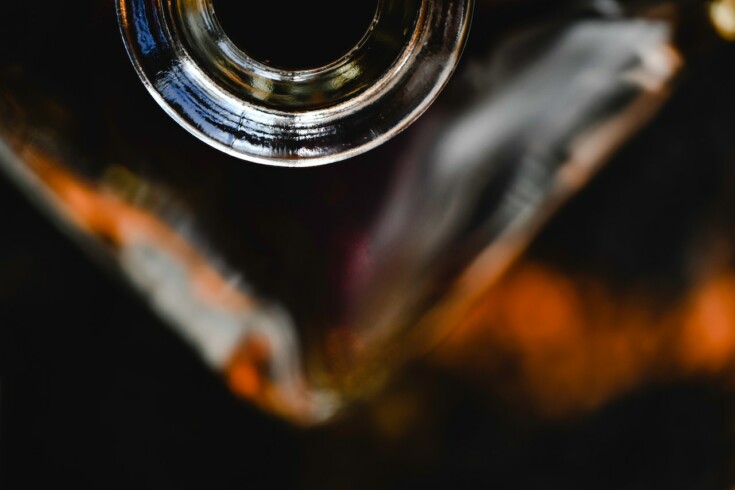
Brandy, a type of distilled spirit made from fermented fruit mash, is a popular drink among many people. But, like many other alcoholic drinks, it is not uncommon to wonder if it can go bad. In short, brandy does not expire in terms of food safety. It is a high-alcohol beverage that can last for a long time if stored properly.
Table of Contents
Understanding Brandy
Brandy is a type of distilled spirit that is made by fermenting fruit mash and then distilling it into a strong, concentrated alcohol. The alcohol content of brandy is typically between 35 and 60 percent ABV, which is significantly higher than that of wine, which typically has an ABV of around 11.6 percent.
Brandy is typically made from grapes, but it can also be made from other fruits such as apples, pears, and cherries. The type of fruit used to make brandy can have a significant impact on its flavor and aroma.
There are several different types of brandy, including:
- Cognac: A type of brandy that is made exclusively in the Cognac region of France. Cognac is typically aged for at least two years in oak barrels, which gives it a rich, complex flavor and aroma.
- Armagnac: Another type of brandy that is made in France, but in the Armagnac region. Armagnac is typically aged for a longer period of time than Cognac, which gives it a more intense flavor and aroma.
- Brandy de Jerez: A type of brandy that is made in the Jerez region of Spain. Brandy de Jerez is typically aged in oak barrels that have previously been used to age sherry, which gives it a unique flavor and aroma.
Brandy can be enjoyed on its own, but it is also commonly used as an ingredient in cocktails and other mixed drinks. Because of its high alcohol content, brandy can also be used as a cooking ingredient, particularly in recipes that call for a splash of alcohol to add flavor to a dish.
 photo credit: live.staticflickr.com
photo credit: live.staticflickr.com
Factors That Influence Brandy’s Shelf Life
While it is a popular drink, it is not always consumed quickly. Therefore, it is important to know how to store it properly to maintain its quality and taste. Here are some factors that influence brandy’s shelf life:
Storage Conditions
The storage conditions of brandy can significantly affect its shelf life. Brandy should be stored in a cool, dark place, away from direct sunlight and heat sources. Exposure to light and heat can cause the alcohol to oxidize, which can negatively impact its flavor and aroma.
Moreover, it is recommended to store brandy bottles upright to prevent the cork from drying out. A dry cork can cause air to enter the bottle, which can lead to spoilage.
Sealed vs. Opened Bottle
An unopened bottle of brandy can last indefinitely if stored properly. However, once the bottle is opened, the shelf life of the brandy can be affected by several factors.
Firstly, exposure to air can cause oxidation, which can alter the taste and aroma of the brandy. To prevent this, it is recommended to consume the brandy within six months of opening the bottle.
Secondly, the storage conditions of the opened bottle can also affect the shelf life of the brandy. It is essential to store the opened bottle in the same conditions as an unopened bottle, i.e., in a cool, dark place, away from sunlight and heat sources.
Lastly, the alcohol content of brandy can also affect its shelf life. A higher alcohol content can help preserve the brandy for a longer period of time. Therefore, it is recommended to choose a brandy with a higher alcohol content if you plan to store it for an extended period.
Signs of Spoiled Brandy
Visual Indicators
If you notice any changes in the appearance of your brandy, it may have gone bad. The following are some visual indicators of spoiled brandy:
- Cloudy or hazy appearance
- Sediment or particles floating in the liquid
- Changes in color from the original hue
If you notice any of these visual indicators, it’s best to discard the brandy.
Smell and Taste Test
The easiest way to tell if your brandy has gone bad is to use your sense of smell and taste. The following are some smell and taste indicators of spoiled brandy:
- A sour or off smell
- A musty or moldy odor
- A sharp or pungent aroma
Proper Storage Techniques for Brandy
When it comes to storing brandy, there are a few key factors to keep in mind that can help ensure its longevity and quality. Here are some essential tips to follow:
Ideal Temperature
The ideal temperature for storing brandy is between 10°C and 20°C (50°F to 68°F). It’s important to avoid extreme temperatures, as they can affect the quality of the brandy. Too much heat can cause the alcohol to evaporate, while too much cold can cause the liquid to thicken and become cloudy. Therefore, it’s best to store brandy in a cool, dark place, away from direct sunlight and heat sources.
Proper Sealing
Proper sealing is crucial when it comes to brandy storage. Once opened, the brandy should be transferred to a glass container with a tight-fitting lid or cork. This helps prevent air from getting inside the bottle and oxidizing the brandy, which can negatively impact its flavor and aroma. It’s also important to avoid using plastic containers, as they can leach chemicals into the brandy and alter its taste.
Light Exposure
Light exposure can also have a negative impact on the quality of brandy. Therefore, it’s important to store it in a dark place, away from direct sunlight. If you must store it in a room with windows, make sure to keep it in a cabinet or cupboard where it won’t be exposed to light.
Frequently Asked Questions
How can you tell if brandy has gone bad?
Brandy that has gone bad will have a flat taste and a foul smell. The liquid appearance may also be affected, with a cloudy or hazy appearance being a sign of spoilage. In some cases, the strength of the brandy may also be weakened. If you notice any of these signs, it is best to discard the brandy.
Is 20-year-old brandy good?
The age of brandy can affect its taste and quality. Some people enjoy the taste of older brandy, while others prefer younger brandy. However, if the brandy has been stored properly, it should still be safe to drink after 20 years. It is important to note that the taste of the brandy may have changed over time, so it is best to try a small amount before consuming a larger quantity.
Does brandy get better with age?
Brandy can improve with age if it is stored properly. The aging process can help to mellow the flavor and add complexity to the brandy. However, not all brandy benefits from aging, and some may even lose flavor over time. It is important to store brandy in a cool, dark place to prevent spoilage and maintain its quality.
Does brandy need to be refrigerated?
Brandy does not need to be refrigerated, but it should be stored in a cool, dark place. Exposure to heat and light can cause the brandy to spoil and lose its quality. It is best to store brandy in a sealed container away from direct sunlight and heat sources.
How long do spirits last once they are opened?
Spirits like brandy can last for a long time once opened, but their quality may deteriorate over time. It is best to consume the brandy within a few months of opening to ensure that it retains its quality and flavor. Storing the brandy in a sealed container in a cool, dark place can help extend its shelf life.
Does expired alcohol get you drunk?
Expired alcohol may still contain alcohol, but it may also contain harmful byproducts of spoilage that can make you sick. It is best to avoid consuming expired alcohol, as it may not be safe to drink. If you are unsure whether a bottle of brandy has gone bad, it is best to err on the side of caution and discard it.
Conclusion
Brandy does not expire in terms of food safety. It is made from fermented fruit mash and distilled into strong, concentrated alcohol before bottling at a whopping 35 to 60 percent ABV, versus the 11.6 percent of the wine. Brandy can be stored for a surprisingly long time, making it a popular choice for collectors and enthusiasts.
However, it is important to note that brandy can lose its flavor over time if not stored correctly. Spirits like brandy tend to evaporate faster than water, so it is crucial to keep the bottle tightly sealed and away from heat, light, and air. This will help preserve the quality and flavor of the brandy for as long as possible.
Related Posts:
Here are some related posts about brandy that you might find helpful:
- On the way back to Age Statement: This post discusses the importance of age statements in the whisky industry. While brandy doesn’t have age statements in the same way that whisky does, this post is still relevant for anyone interested in aged spirits.
- Campbeltown, a whisky region almost gone silent: This post explores the history of Campbeltown, a region in Scotland that was once home to over 30 distilleries but now has only a handful. While not directly related to brandy, this post provides interesting context for anyone interested in the history of spirits.
- Whisky isn’t a goddamn arms race: This post discusses the competitive nature of the whisky industry and argues that the quality of a whisky should be judged on its own merits rather than its rarity or price. While not specifically about brandy, this post may be interesting to anyone who is tired of the hype around expensive spirits.
No, good whisky isn’t too expensive!: This post is a response to the common complaint that whisky prices have gotten out of control. While not directly related to brandy, this post may be helpful to anyone looking for affordable options in the world of spirits.



